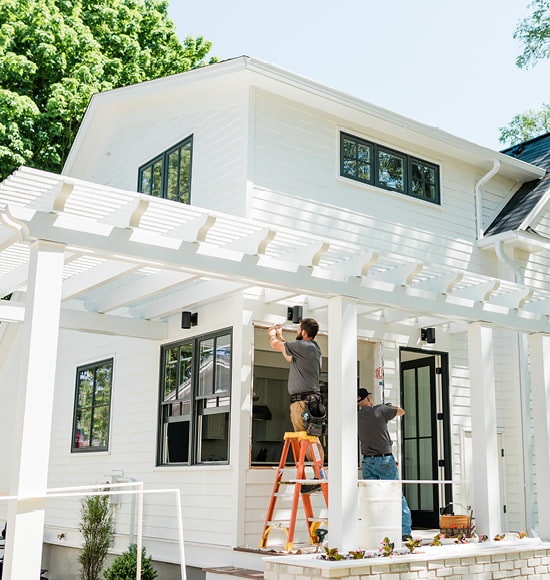Upgrade Your Home with Houston Pella Windows Setup
Upgrade Your Home with Houston Pella Windows Setup
Blog Article
Upgrade Your Home With Energy-Efficient Window Substitutes
In the realm of home enhancement, the decision to update to energy-efficient home window substitutes can considerably influence both the functionality and aesthetics of a house (Conroe window replacement). As homeowners seek ways to boost the effectiveness and sustainability of their living spaces, the option of windows plays a critical function in attaining these goals. Past the surface level of plain visual appeals, energy-efficient windows provide a wide range of benefits that exceed simple visual appeal. With a cautious selection procedure that takes into consideration different variables, from glass kinds to setup methods, getting started on this home upgrade trip could show to be a transformative venture.
Advantages of Energy-Efficient Windows

The installment of energy-efficient windows offers significant financial savings on utility bills while boosting environmental sustainability. Additionally, energy-efficient home windows can help control dampness degrees within the home, minimizing the threat of mold and mold development.
Beyond the economic benefits, energy-efficient home windows contribute to environmental sustainability by lowering carbon emissions linked with power production. By lowering energy use, these windows help alleviate the environmental influence of illumination, heating, and cooling domestic spaces. This decrease in energy consumption plays a crucial role in combating climate adjustment and promoting a greener future for generations to come. Generally, buying energy-efficient windows not only enhances the comfort and efficiency of a home yet also lines up with eco aware techniques.
Sorts Of Energy-Efficient Glass
Numerous innovative sorts of energy-efficient glass deal distinct buildings that satisfy various requirements and preferences in boosting the sustainability and effectiveness of structures. Low-emissivity (Low-E) glass is a preferred option developed to reduce the amount of ultraviolet and infrared light that can travel through the glass, therefore lowering warmth transfer. This sort of glass helps preserve a constant indoor temperature, reducing the demand for heating or cooling systems, and eventually decreasing energy expenses. An additional ingenious choice is spectrally discerning glass, which enables noticeable light to go through while obstructing certain kinds of infrared radiation. This assists in keeping a comfortable interior atmosphere while decreasing warm gain. Triple-pane glass, containing 3 layers of glass with insulating gas between them, gives enhanced thermal insulation, making it highly energy-efficient. Additionally, self-cleaning glass with a special finish that breaks down and loosens dirt when revealed to sunlight can decrease maintenance demands and keep home windows looking clean. Each sort of energy-efficient glass offers distinct benefits, allowing homeowners to choose one of the most appropriate alternative based on their certain demands and goals.
Elements to Consider When Picking
When contemplating energy-efficient home window replacements, it is vital to carefully examine particular variables that align with your sustainability objectives and preferred power cost savings. The U-factor steps just how well the home window insulates, with reduced numbers showing much better insulation, while the SHGC suggests the window's capability to obstruct warmth from sunlight. By carefully assessing these factors, you can select energy-efficient home windows that improve convenience, reduce power prices, and benefit the setting.
Installment and Maintenance Tips

Regular upkeep is vital to maintaining the performance of your energy-efficient home windows. Check the windows regularly for any signs of damages, wear, or sealant degeneration. Clean the frames, tracks, and glass frequently using mild soap and water to get rid of dust and grime that can affect efficiency. Inspect the weather-stripping and seals for any splits or gaps and change them if needed to keep the home windows' energy performance.
Additionally, lubricate relocating parts such as hinges and locks skylight installation cost to make sure smooth operation. By following these installment and upkeep suggestions, you can enhance the energy efficiency of your home and prolong the life-span of your energy-efficient windows.
Cost-Benefit Evaluation of Upgrading

Energy-efficient home windows are made to decrease warmth transfer, minimizing the requirement for heating and cooling down systems to burn the midnight oil. This can bring about considerable cost savings on energy costs, specifically in regions with extreme temperature levels. In addition, energy-efficient windows can boost the total value of your home, making it much more attractive to possible buyers if you choose to sell in the future.
When computing the cost-benefit evaluation, consider the potential financial savings on energy costs, any kind of offered incentives or rebates, and the life-span of the home windows. While the preliminary price may be higher, the long-lasting savings and benefits of energy-efficient home windows make them a clever investment for homeowners wanting to improve their residential or commercial property's energy performance and value.

Conclusion
In final thought, updating to energy-efficient home window replacements supplies various benefits such as decreased power consumption, enhanced comfort, and expense financial savings. By picking the ideal kind of energy-efficient glass and considering aspects like structure product and installment, homeowners can optimize the performance of their home windows.
When considering energy-efficient home window replacements, it is essential to thoroughly evaluate particular elements that align with your sustainability objectives and desired power financial savings. The U-factor actions just how well the home window protects, with lower numbers indicating better insulation, while the SHGC shows the home window's capability to block heat from sunlight. By meticulously reviewing these variables, you can choose energy-efficient windows that enhance convenience, minimize energy costs, and profit the atmosphere.
While energy-efficient windows might have a greater in advance cost contrasted to standard windows, the long-term advantages commonly exceed the initial financial investment.In final thought, upgrading to energy-efficient home window replacements offers countless benefits such as reduced power consumption, increased convenience, and useful content cost financial savings.
Report this page